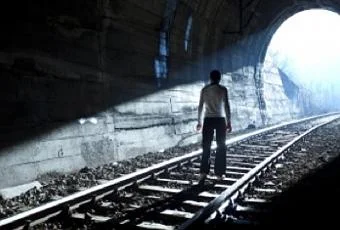The Impact of Duopoly (Part 1): Divided
/Did you know that less than one-third of Americans claim to have “a great deal” of trust in the government? Did you know that this trust has been steadily declining for over 50 years? We live in a country that calls itself “the leader of the free world,” and yet, most of our people don’t feel fully able to trust it.
How many of you find yourselves getting frustrated every time you see or hear the news?
How many of you have cut off communication with a friend or relative due to their bold political opinions?
How many of you scroll through social media and find your emotional health being attacked after reading some one-sided article or opinionated post?
How many of you find yourself debating or arguing angrily with someone in a comments thread?
On a personal note, I’ve found myself becoming aggravated because Facebook was seemingly becoming nothing more than a propaganda machine. So aggravated in fact, that I found myself lashing out at friends over unimportant non-political posts. I had become the anger that I was seeing on social media. Luckily, my friends were good enough to hold a mirror up to help me see how obnoxious I was being.
Just think about how that impacts our mental health. Imagine the impact that this kind of regular exposure to stress can have on your overall demeanor. The impact it can have on your social life and even your physical health.
Our nation, it appears, is divided. How did this happen? How did we become so divided?
The Two-Party System of the United States has become quite powerful. Republicans and Democrats dominate the political system we see today. This is considered a duopoly, which is like a monopoly, but with two entities instead of one.
One significant benefit to those involved in a duopoly is that there is no real threat of competition, making political races limited and highly predictable. It also forces the masses to choose one side to support; not only to promote their side, but to ensure that the “other” side doesn’t “win.”
If we look at history, the two parties have worked well together in the past to make laws and run the country:
In 1935, the Social Security Act was passed; roughly ninety percent of democrats and seventy-five percent of republicans voted for it.
In 1964, the Civil Rights Act was passed with roughly eighty percent of republican support and sixty percent of democratic support.
However, when we look more recently:
In 2010, the Affordable Care Act passed with zero republican support.
In 2018, the Tax Reform Bill was passed with absolutely no democratic support.
Several of our founding fathers warned about how a two-party system could lead to the demise of the United States. With this aforementioned lack of competition, it can become easy for the Republican and Democratic parties to focus on supporting themselves, rather than the citizens they are meant to represent.
Some might say, can’t we just add a third (or fourth, or fifth) party?
It definitely wouldn’t be easy. Over time, the two parties have built systems into place to ensure that this duopoly exists. For example, congressional districts are drawn to divide areas of the country by chunks of the population that lean towards one side or the other. In most places around the nation, you can only vote in a primary if you are registered as one side or the other. The two-party “political machine” has become stronger over time, seemingly unstoppable to some.
We cheer for the donkeys or the elephants. Or, perhaps more accurately, we align ourselves with one so we can root against the other. It feels as though we have become pawns in a game that has not only dominated the citizens, but has dominated the bodies of government that made the game itself. The news, social media, and our friends and family are multiple means for getting ourselves stressed out.
Can anything actually be done to positively impact our overall mental, emotional, social and financial health?
Share your comments at the bottom of the page.
Stay tuned for Part 2 of “Impact of Duopoly”
Whatismyhealth © 2018
Special thanks to our sources:
https://www.npr.org/2015/11/23/457063796/poll-only-1-in-5-americans-say-they-trust-the-government
http://freakonomics.com/podcast/politics-industry/
https://www.ssa.gov/history/tally.html
http://clerk.house.gov/evs/2010/roll165.xml
https://www.nytimes.com/interactive/2017/12/19/us/politics/tax-bill-house-live-vote.html
https://www.biography.com/people/groups/founding-fathers
https://www.history.com/news/founding-fathers-political-parties-opinion


































I didn’t realize that animal products are hiding everywhere, or what an adjustment it would be to give that up.